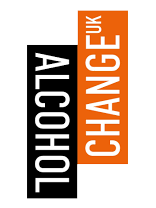Digital interventions to reduce alcohol-related harm: a rapid horizon-scanning review
A rapid horizon scanning review of the published and grey literature on digital interventions to reduce alcohol-related harm covering the period January 2017 to April 2019.
Introduction
Digital interventions are defined as those that are delivered through a computer or mobile device such as a laptop, mobile phone or tablet. For example, mobile phone text-message (SMS) interventions, computer-delivered interventions administered on fixed computers or remotely via the internet, and mobile phone applications (apps).
Although this literature has been subjected to a number of systematic and narrative reviews, this is an active research field characterised by rapid technological advances. Horizon scanning methods are needed to identify trends and notable gaps in this literature.
Project aims
We conducted a rapid horizon scanning review of the published and grey literature on digital interventions to reduce alcohol-related harm covering the period January 2017 to April 2019. We had three broad aims:
- To identify and describe innovations and newly emerging digital interventions that can be used to reduce alcohol-related harm.
- To consider how these compare with existing digital interventions.
- To identify potential gaps in the types of digital interventions that are being developed or subjected to rigorous evaluation.
Findings
- There are many randomised controlled trials of digital interventions (at least 72 published between 2017 and 2019), but relatively few studies have used other methods to evaluate those interventions.
- Populations that are most at risk of alcohol-related harm have been understudied relative to community-dwelling and student populations.
- There were notable recent trends for digital interventions to be increasingly delivered via the internet and smartphone apps, sometimes in combination with biosensors, and for interventions for delivery in clinical and primary prevention settings.
- Alcohol reduction apps available on the app stores may increasingly be using interactive features rather than simply providing information.
Key project information

This project was funded by Alcohol Change UK.
Dates
Final report July 2019
Research team
Professor Matt Field
Fiona Campbell
Dr Emma Hock
Dr Ruth Wong
Key contact
Report
The full findings of the research were published in the report Rapid Evidence Review Digital interventions to reduce alcohol-related harm: a rapid horizon scanning review which is available to download from the Alcohol Change UK website. A executive summary is also available.
You might also be interested in…
No/Lo Project
The No/Lo Project investigates whether non-alcoholic or low-alcohol drinks can improve people's health. These drinks are beers, ciders, wines, spirits that are alcohol-free or contain a little alcohol. We call them no/lo drinks.
STAPM
The Sheffield Tobacco and Alcohol Policy Modelling Platform (STAPM) research programme aims to identify and evaluate approaches to reducing the harms caused by tobacco and alcohol consumption. By providing policymakers with evidence-based insights, STAPM seeks to improve public health policymaking and commissioning.
Lucy Burke to speak at Pint of Science festival
SARG PhD researcher Lucy Burke will give a talk on no- and low-alcohol drinks at this year's Pint of Science festival.
